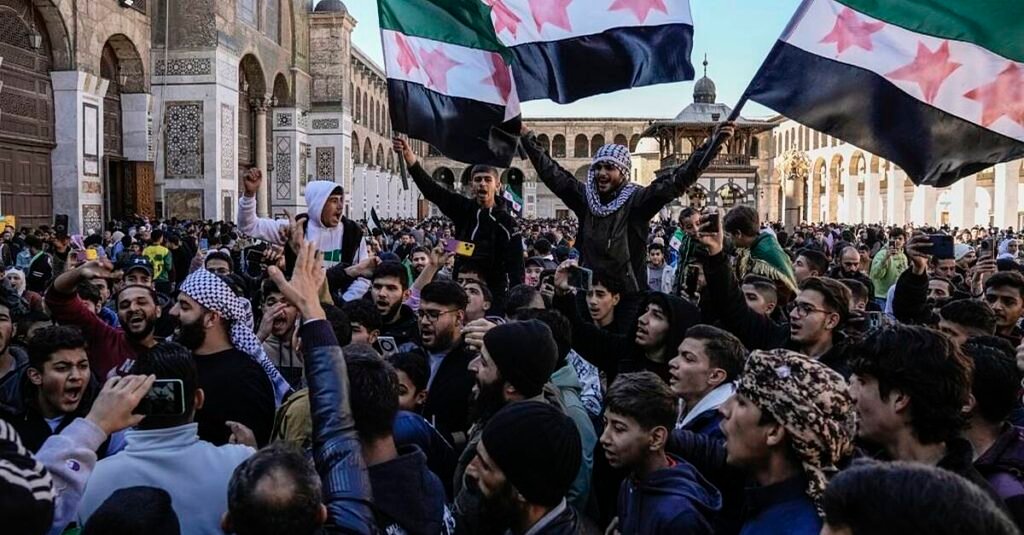In a historic moment for Syria, thousands of jubilant citizens gathered at the Umayyad Mosque in Damascus for Friday prayers, waving opposition flags and chanting slogans of freedom. This was the first Friday since the fall of President Bashar al-Assad, with rebel forces overthrowing his regime just days prior.
The crowd, a mix of families, children, and armed Islamist fighters, poured into the streets and squares of the Old City to celebrate the end of Assad’s rule. The scene echoed the early days of the 2011 uprising, when pro-democracy protests erupted across Syrian cities. But this time, it was Damascus—once the heart of Assad’s regime—that witnessed the historic gathering.
“I’m here because Syria has been freed, and we are finally liberated from the prison we’ve lived in for so long,” said Nour Thi al-Ghina, 38, who expressed her joy at the unexpected turn of events. “This is the first time we’ve come together like this, and I never imagined I’d see such a moment.”
Former rebel fighter Mohammed Shobek, 30, who joined the victorious Hayat Tahrir al-Sham (HTS) group, posed for celebratory photos with local children, holding a rose in the barrel of his Kalashnikov. “We’ve finished the war and are now praying for peace. We are here to rebuild Syria, together,” he said.
The civil war that began in 2011 after Assad’s brutal crackdown on peaceful protesters resulted in unimaginable destruction. Over the course of 13 years, the conflict killed over half a million people and displaced millions more.
As crowds filled the streets, they chanted, “One, one, one, the Syrian people are one!” Many waved the Syrian independence flag, which had been adopted by the opposition during the uprising. In front of the mosque, images of those who had disappeared or been detained in Assad’s prisons hung on the walls, alongside phone numbers for relatives desperate for information.
Under Assad’s regime, prisons were notorious for detaining anyone suspected of opposing the Baath Party’s rule. The Syrian Observatory for Human Rights reported in 2022 that over 100,000 people had died in these prisons since the war began.
Earlier, rebel leader Abu Mohammed al-Jolani, head of HTS, had called for a celebration of the revolution’s victory. HTS forces, under his leadership, had launched a swift offensive, capturing Damascus and overthrowing Assad in less than two weeks. Jolani, now known as Ahmed al-Sharaa, has appointed Mohammad al-Bashir as interim prime minister in a post-war government.
Omar al-Khaled, 23, from HTS’s stronghold in Idlib, shared his excitement as he visited Damascus for the first time. “It’s been my dream to come here. I can’t explain how happy I am,” he said. “Our morale is high, and we believe Syria is heading toward a better future.”
Meanwhile, the interim government has vowed to establish the “rule of law” after years of abuses under Assad’s regime. Amani Zanhur, a professor whose students had vanished in Assad’s prisons, expressed her joy at the new chapter for Syria. “There’s nothing worse than what was. We can no longer live in fear,” she said, voicing support for a state based on Islamic principles.
In Umayyad Square, crowds raised a massive rebel flag at the landmark sword monument, continuing to chant and celebrate. Amina Maarawi, 42, an Islamic preacher, emphasized unity: “Let’s focus on what brings us together—our shared hatred for Bashar al-Assad,” she said, as the celebrations of freedom echoed through the streets.


